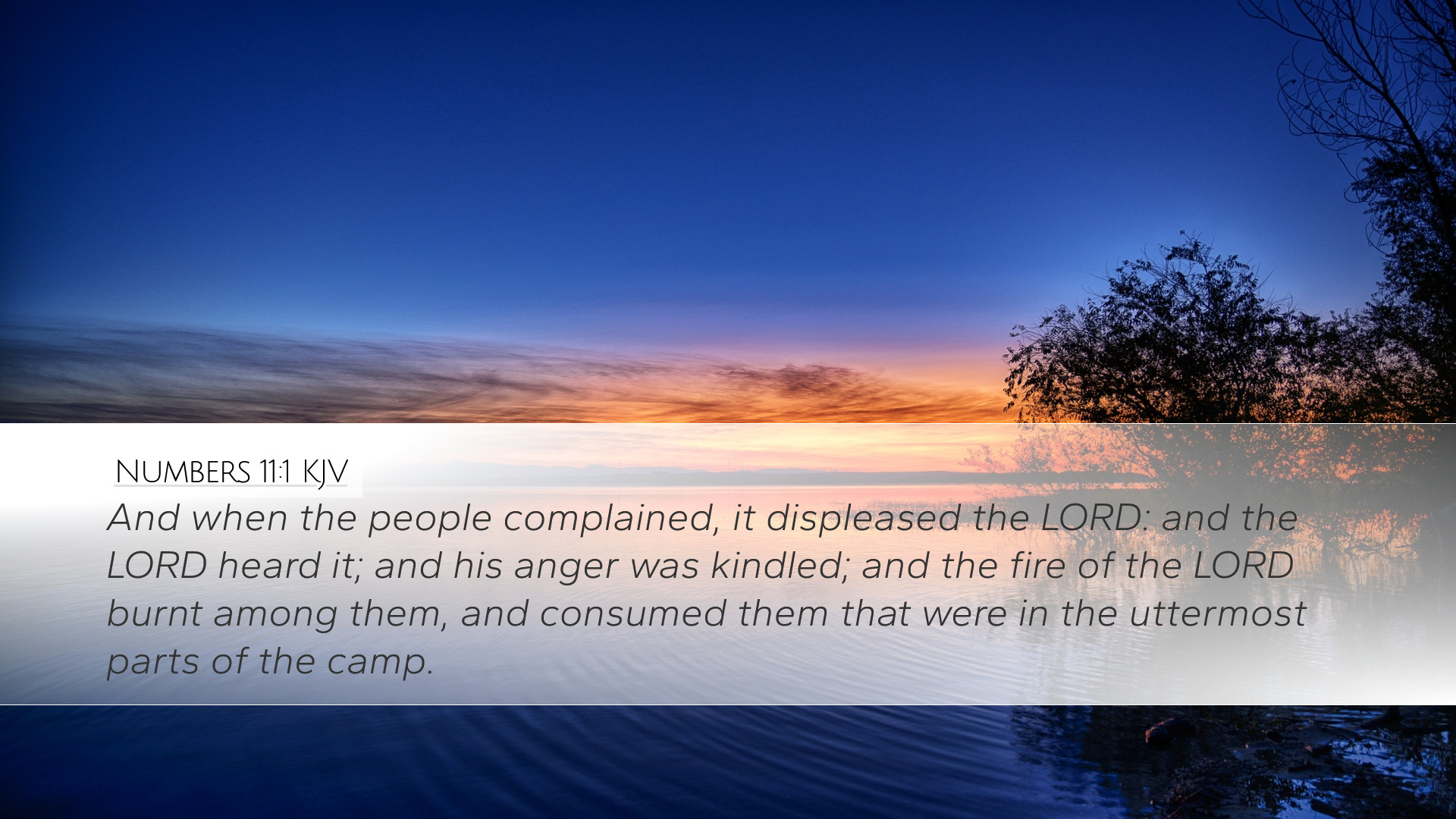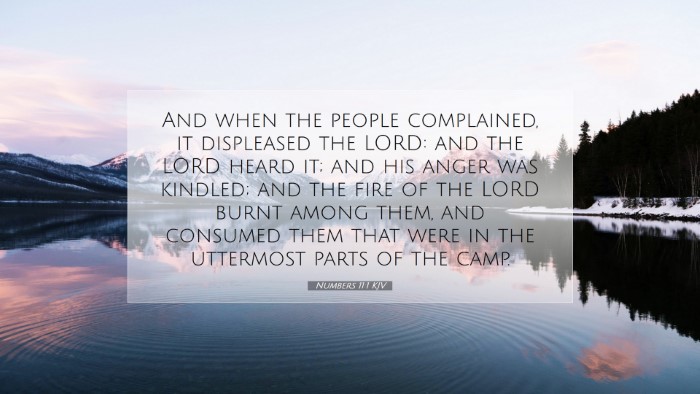Commentary on Numbers 11:1
Numbers 11:1 states:
"And when the people complained, it displeased the Lord: and the Lord heard it; and his anger was kindled; and the fire of the Lord burnt among them, and consumed them that were in the uttermost parts of the camp."
Contextual Understanding
The verse occurs during the journey of the Israelites in the wilderness, a period fraught with challenges and trials. The continual complaints of the people reveal a significant aspect of human nature—discontentment. This passage serves as an important lesson about the consequences of grumbling against divine provision.
The Nature of the Complaints
- Complaining Spirit: Matthew Henry highlights that the complaints arose from the people's desire for comfort and preference, showing ingratitude for God's sustenance.
- Divine Displeasure: Albert Barnes notes that complaints can provoke the anger of God, as dissatisfaction with divine provision reflects distrust in God’s plan.
- Community Effect: Adam Clarke emphasizes the collective nature of the grievances, suggesting that discontent spreads like wildfire among communities.
Spiritual Consequences
The consequences of the people’s complaints are severe. “The fire of the Lord” stands as a manifestation of divine judgment and a serious reminder of the reverent fear that should be accorded to God:
- Divine Anger: The anger of the Lord reveals His holiness and righteousness in response to sin. Clarke suggests that this indicates God’s intolerance for ungratefulness.
- Judgment on the Camps: Fire consuming those in the extremities signifies the serious nature of rebellion. Henry points out that often those who stray farthest from Him are the first to face judgment.
- Purification through Adversity: Barnes argues that sometimes God uses hardships portrayed through such examples to purify His people and direct them back to reliance on Him.
Theological Reflections
This passage offers rich theological insights applicable to contemporary Christian life:
- Understanding Divine Patience: God listens, showing patience before the fire of judgment. His initial response is one of hearing rather than immediate action, indicating a long-suffering nature.
- The Importance of Joy: In Philippians 4:4, Paul admonishes believers to rejoice. Unlike Israel, believers are called to express gratitude and trust, particularly in their wilderness experiences.
- Community Responsibility: Followers are urged to support one another against the temptation to complain. Unity in faith can often prevent a collective spirit of discontent.
Lesson on Grumbling
The lesson from Numbers 11:1 extends into practical applications:
- Examine the Heart: Both scholars stress the need for introspection; complaints usually stem from deeper heart issues of trust and contentment.
- Shift in Focus: Henry advises believers to shift their focus from problems to God’s promises, reinforcing the importance of remembering His provisions.
- Encouraging Accountability: Churches should foster environments where members lovingly hold each other accountable for attitudes and words.
Conclusion
Numbers 11:1 serves as both a warning and an encouragement. It challenges believers—including pastors, students, and scholars—to reflect on the nature of their complaints, to recognize the seriousness of displeasing God, and to embrace a spirit of gratitude in all circumstances.


